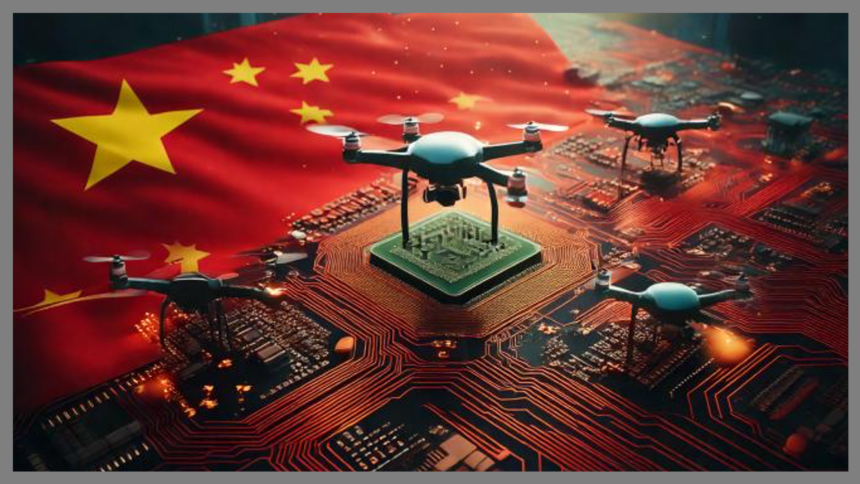Trade wars between the U.S. and China intensify as global tensions rise. Tensions are bringing security, chip production, and drone manufacturing into the spotlight. With the U.S. tightening restrictions on Chinese tech companies, China is responding with its own set of measures that cripple various industries.
What’s Happening?
Antitrust Probes, Drones, and Exports
China’s State Administration for Market Regulation (SAMR) launched an antitrust investigation into Nvidia. The investigation particularly focuses on its 2020 acquisition of Mellanox, a vital supplier of networking technology for data centers and supercomputers. The probe’s implications are far-reaching for Nvidia since it holds the dominant GPU market lead that is essential for AI R&D. This investigation is seen by many as retaliatory following the U.S. blocking chip exports to China under the pretext of national security concerns. Analysts believe that this investigation slows down Nvidia’s growth in the Chinese market and cause a draw-down in its global chip distribution.
China is also tightening controls over its drone exports. New restrictions are expected in early 2025, and reports suggest that Chinese drone manufacturers are already limiting shipments to the U.S. and Europe, including Ukraine. This is a significant development, as China dominates around 80% of the global drone market, including parts for unmanned aerial vehicles (UAVs) and drones used in military operations. The new export rules come at a time when Ukraine is heavily reliant on drones in its defense against Russian aggression. The restrictions could hinder Ukraine’s military capabilities if it continues to rely on Chinese-made drones or parts.

Why This Matters
The combination of restrictions on chips and drone parts affects the technological capabilities in several world events.
Nvidia’s GPUs are integral to the AI sector, powering everything from machine learning models to autonomous systems. A prolonged investigation or potential ban could disrupt Nvidia’s ability to compete in one of the largest markets for high-performance computing. The U.S. and China are engaged in a high-stakes battle for dominance and control over key chip technologies used in AI and automation.
Geopolitical Ramifications
The tensions between the U.S. and China are increasingly affecting global trade. The U.S. continues to blacklist Chinese companies, including drone manufacturers like DJI, accusing them of military ties and security concerns. Meanwhile, China retaliates by limiting exports of drone technology, affecting not only military capabilities but also industries in the U.S. and Europe that rely on drones for everything from agriculture to emergency response.

Drone warfare is central to Ukraine’s strategy in its fight against Russia. With the U.S. and China’s ongoing technological, geopolitical tug-of-war, any restrictions on drone supplies undermine Ukraine’s defense efforts especially if the Chinese government pulls back its support for Ukraine’s drone fleet. At the same time, the U.S. stepped up its own anti-drone technologies; it remains to be seen how China will responds to the efforts.
TF Summary: What’s Next?
As both the U.S. and China dig in their heels, TF APAC expects a continuation of the trade wars across tech, chips, and military hardware. The battle over AI supremacy and military drones will escalate. As global companies wade through regulatory hurdles in both countries, other potentially impacted companies will observe how these geopolitical conflicts unfold.
Both the U.S. and China are seeking ways to secure their tech sovereignty. Companies will need to be adaptive to what appears to be the new normal in international affairs. For now, we hold our collective breaths as the trade war intensifies.
— Text-to-Speech (TTS) provided by gspeech


